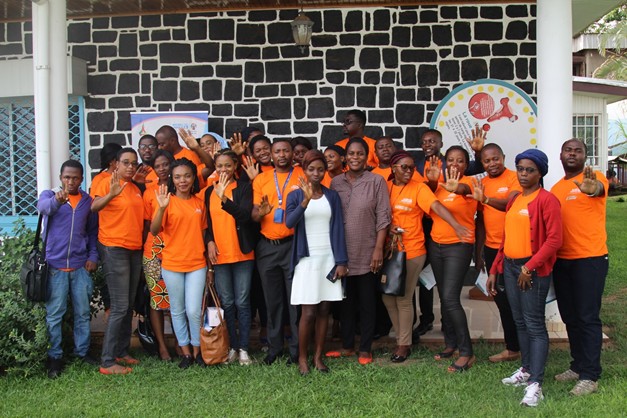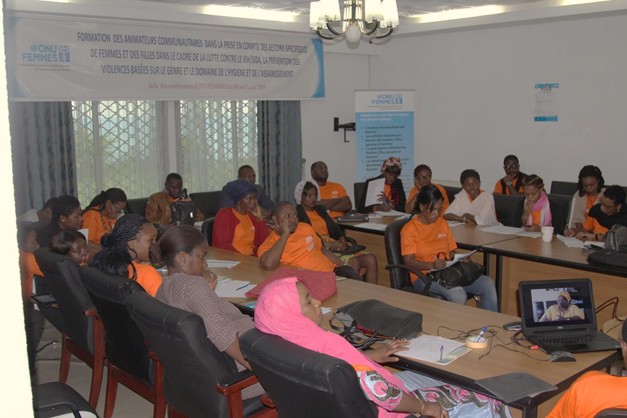UN Women train over 30 Cameroonian youths on GBV prevention and Menstrual Hygiene Management
Date:

Nearly 30 young women and men of the Cameroon National Youth Council and the association Peace of Heart have been trained on mainstreaming the specific needs of women and girls in the fight against HIV / AIDS, to prevent gender-based violence (GBV) and to better handle Menstrual Hygiene Management (MHM). The three days training which took place from 9 – 11 April 2019 was organized by UN Women to build capacity of community facilitators to plan and organize capacity building and sensitizing sessions of local community.
At the closure of the workshop the participants expressed their satisfaction regarding the modules and exposés that were presented and had a better understanding not only of the concept of GBV and the type of response to address it, but also of Menstrual Hygiene Management and its components. For AMANA NKAMA Lucie of the association Les Saphires, "the training has taken away all the apprehensions I had about Gender Based Violence by making me understand that it is a notion whose sources are deeply rooted in culture ". BIKOI Eugénie, president of the association Peace of Heart, believes for her part that "the in-depth knowledge of the MHM and the fight against the feminization of HIV will help us deploy more easily on the field ...".

In view of the implementation of its 2019 Action Plan’s impacts I and III, UN Women implements interventions to eliminate all forms of violence against women, strengthen opinion leaders’ capacities to tackle harmful cultural practices that adversely affect reproductive and maternal health. Hence, the importance of the training of community facilitators, to sway public policies integrating menstrual hygiene and the fight against the feminization of HIV / AIDS, as well as making them integrate these concepts when planning their projects.